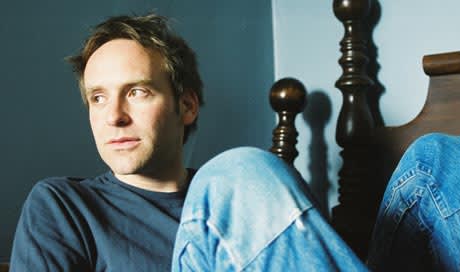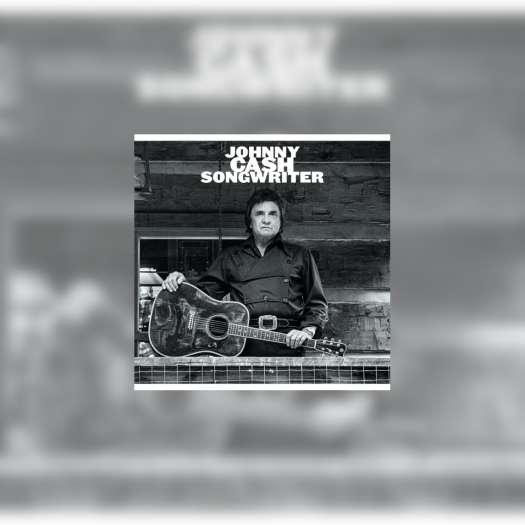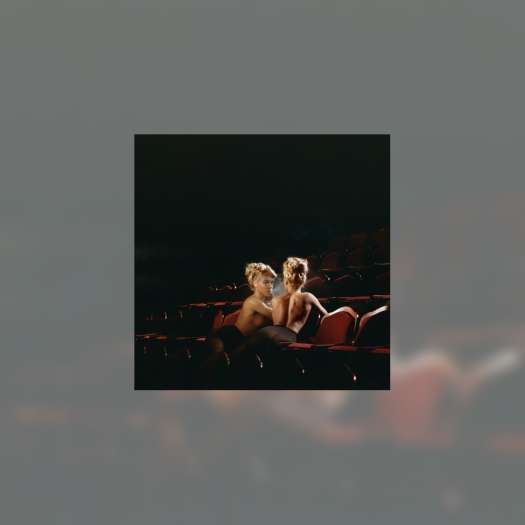"I don't want to make a record this way again," says Toronto singer-songwriter Howie Beck. "I'm super proud of it; I couldn't push it any further and at a certain point you have to say stop, but next time I want to do things differently."
It's been five years since fans of Howie Beck's whisper-quiet murmurings have heard new material from the insular explorer, five years since Hollow, the brilliant bedroom-bound album that garnered him attention overseas. Fans have wondered when he might emerge again, while close friends worried more about Howie's state of mind. "I spent a lot of time at home by myself, looking at walls." And writing. And recording. A lot.
After two years of touring and promotion for Hollow, Beck found himself facing a European career derailed by 9/11 and the suicide of his UK indie label owner suddenly his intimate musings of loneliness and heartbreak seemed less important and Beck just stopped. He eventually found a way through the mental block by diving in to the writing and recording process, once again home-recording in a series of dingy Toronto apartments where concern for neighbours dictated an upper limit on volume and he almost didn't find his way out again.
"I just recorded and re-recorded and mixed and remixed and mastered and re-mastered and threw songs out and recorded new ones," he says. "[Toronto stalwart] Noah Mintz mastered it and I drove him crazy. At one point he said this album had been mastered more times than any other album, ever dozens of times, new versions, different versions of songs. Looking back at it now, I know why I drove him nuts, but I was so inside every tiny detail."
Those details include a more ambitious palette than Beck has employed before: strings, horns, and even some louder, rockin' out efforts take his new, self-titled album (on True North) a few steps out of the bedroom. Buddy Hayden helped out by offering his recording space, where Howie could up the volume, but only when Hayden was out of town. "When it comes to music, I'm a very private person," Beck explains. "I don't write when anyone's around. To my recollection, I don't think I've ever sat down and played anyone a song."
He has however played with a few friends (including Ed Harcourt and Nada Surf singer Matthew Caws), an experience that provided a glimpse of how he could get out of the bedroom and into the world. "I'd be sitting there editing a part for two days, and Leslie Feist comes in and nails a vocal in half an hour. Part of me wanted her to do it more, because it couldn't possibly just get finished. But it's given me a glimpse of letting go of this production thing and trying to learn to just let things happen."
Though it's his third full length record after 1997's charmingly embryonic Pop and Crash and 1999's Hollow the fact that this album is self-titled couldn't be more appropriate. Not only does Beck play almost everything (including his first love, drums), but the writing is almost exclusively first person. "It wasn't a conscious decision, and there are songs that aren't written that way, but yeah, it started to make more and more sense conceptually. It's just me, writing these songs in the first person. It wasn't intentionally written that way, but it was intentionally compiled that way as a whole."
Having emerged from this intensively introspective process, Beck seems ready to stick his head out and have a look around. It's an awareness that only dawned when he found himself on the other side of 30. "I realised that I didn't have to take shit from anyone. I'm 30: I don't care. I'm going to do what I want. And maybe get some other people involved for once."
It's been five years since fans of Howie Beck's whisper-quiet murmurings have heard new material from the insular explorer, five years since Hollow, the brilliant bedroom-bound album that garnered him attention overseas. Fans have wondered when he might emerge again, while close friends worried more about Howie's state of mind. "I spent a lot of time at home by myself, looking at walls." And writing. And recording. A lot.
After two years of touring and promotion for Hollow, Beck found himself facing a European career derailed by 9/11 and the suicide of his UK indie label owner suddenly his intimate musings of loneliness and heartbreak seemed less important and Beck just stopped. He eventually found a way through the mental block by diving in to the writing and recording process, once again home-recording in a series of dingy Toronto apartments where concern for neighbours dictated an upper limit on volume and he almost didn't find his way out again.
"I just recorded and re-recorded and mixed and remixed and mastered and re-mastered and threw songs out and recorded new ones," he says. "[Toronto stalwart] Noah Mintz mastered it and I drove him crazy. At one point he said this album had been mastered more times than any other album, ever dozens of times, new versions, different versions of songs. Looking back at it now, I know why I drove him nuts, but I was so inside every tiny detail."
Those details include a more ambitious palette than Beck has employed before: strings, horns, and even some louder, rockin' out efforts take his new, self-titled album (on True North) a few steps out of the bedroom. Buddy Hayden helped out by offering his recording space, where Howie could up the volume, but only when Hayden was out of town. "When it comes to music, I'm a very private person," Beck explains. "I don't write when anyone's around. To my recollection, I don't think I've ever sat down and played anyone a song."
He has however played with a few friends (including Ed Harcourt and Nada Surf singer Matthew Caws), an experience that provided a glimpse of how he could get out of the bedroom and into the world. "I'd be sitting there editing a part for two days, and Leslie Feist comes in and nails a vocal in half an hour. Part of me wanted her to do it more, because it couldn't possibly just get finished. But it's given me a glimpse of letting go of this production thing and trying to learn to just let things happen."
Though it's his third full length record after 1997's charmingly embryonic Pop and Crash and 1999's Hollow the fact that this album is self-titled couldn't be more appropriate. Not only does Beck play almost everything (including his first love, drums), but the writing is almost exclusively first person. "It wasn't a conscious decision, and there are songs that aren't written that way, but yeah, it started to make more and more sense conceptually. It's just me, writing these songs in the first person. It wasn't intentionally written that way, but it was intentionally compiled that way as a whole."
Having emerged from this intensively introspective process, Beck seems ready to stick his head out and have a look around. It's an awareness that only dawned when he found himself on the other side of 30. "I realised that I didn't have to take shit from anyone. I'm 30: I don't care. I'm going to do what I want. And maybe get some other people involved for once."




